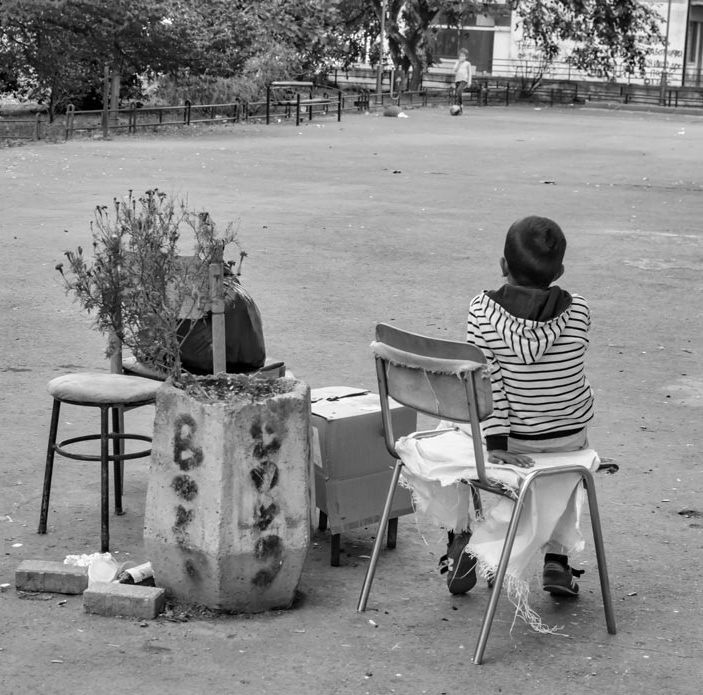A NEW programme to end child labour in Zarqa and Amman

A new UNICEF programme to end the worst forms of child labour in Zarqa and Amman will help hundreds of children to escape from dangerous working environments and return to education and training, as well as providing their families with a package of support to reduce the burden on children to work.
The programme, implemented by UNICEF partner Rowad Al Khair Society, will bring together the Ministry of Labour, municipalities, local organizations and the private sector to stamp out the harmful practice of child labour and increase community awareness on its detrimental impact on children and their futures.
“Child labour robs children of their childhood. It deprives them of their rights, exposes them to violence and physical and mental harm, and traps them in intergenerational cycles of poverty,” said Tanya Chapuisat, Representative, UNICEF Jordan.
“This new programme will help children escape the nightmare of child labour and provide much-needed support to vulnerable families who are facing even greater economic shocks as a result of the COVID-19 pandemic.”
Trained social workers will identify 400 of the most vulnerable boys and girls, of all nationalities, aged 6-18 years in Zarqa and Amman, involved in the worst forms of child labor. Each child will receive psychosocial support and help to access to education.
life skills, entrepreneurship opportunities and training. Families of children at-risk of child labour will be assisted with a package of specialized support, as well as information on the negative impacts of child labour and access to livelihoods opportunities and cash assistance.
The programme will also focus on prevention measures by providing relevant education and training programs that combine vocational, life skills, and entrepreneurial training to enhance the employability of young people in these areas.
Quick impact projects will be carried out in remote villages where children are at the greatest risk to improve the quality of services and opportunities for families, reducing their reliance on negative coping mechanisms such as early marriage and child labour.
Reducing the numbers of children engaged in the worst forms of child labour contributes to Jordan’s efforts to achieve Sustainable Development Goal 8 by 2030
Tags
Related Posts
Singer hit with child labour fine after son joins him on stage during concert
Folk singer Angelo Kelly, 39, was fined 3,000 euros (£2,600) for being in contravention of Germany’s strict child labour laws after four-year-old William joined him for a rendition of What A Wonderful World….
February 17, 2021Mars, Nestlé and Hershey to face child slavery lawsuit in US
Eight children who claim they were used as slave labour on cocoa plantations in Ivory Coast have launched legal action against the world’s biggest chocolate companies. They accuse the corporations of aiding and abetting the illegal enslavement of “thousands” of children on cocoa farms in their supply chains….
February 15, 2021


